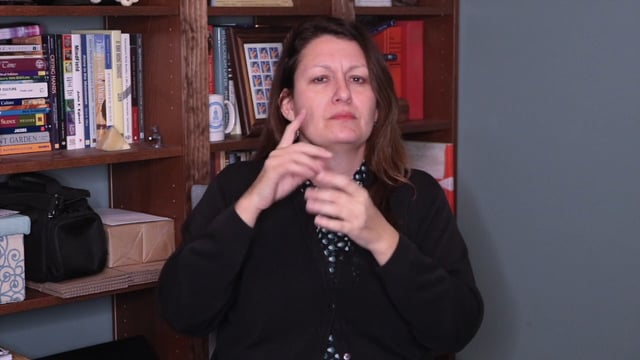I recently watched Bernard Bragg’s new DVD, Bragg on Bragg, a delightful glimpse into Bragg’s life. Although there are numerous memorable moments on that DVD, one thing Bragg said jumped out at me. In talking about teachers and deaf children, he said that too often teachers prioritize grammar before communication—something that should not happen.
As he said that, I nodded quickly because this is something I have said many times as well. I also remembered a talk I gave to a group of parents who had deaf children. During the question-and-answer session, the participants asked fantastic questions. There was one father who had brought his 14-year-old son, which I talked about in a 2004 article:
A father of a 14-year-old boy went into an explanation of how his “hearing-impaired” son was obviously smart, but he found it frustrating that his son struggled with where to place commas. I glanced over at his son sitting next to him, and the boy was clearly embarrassed. The father ended by asking if commas were found in ASL.
I thanked the father for asking a good question, and explained that there are the equivalent of commas (head pauses, body movement, etc.) in ASL. I also said gently that I, as a deaf person, would be more concerned about whether a deaf child could read Hemingway or communicate his feelings. I added that I preferred to encourage deaf children in expressing themselves, rather than pigeonhole their comma use. The boy smiled at me and nodded in gratitude. The father sat down, deep in thought. After the session, the boy approached me shyly, and I was blown away by how intelligent he was, and how gentle yet beautiful his signing was.
On the DVD, Bragg talked about how he saw time after time a teacher stopping a child mid-sentence to correct his/her grammar. By the time the impromptu grammar lesson has ended, the child often has lost his train of thought or motivation to say what he originally wanted to.
Even with modern-day, greater understanding of ASL and language diversity, I continue to see teachers and parents prioritizing grammar over communication, defeating the child’s initial enthusiasm. While grammar is certainly an essential part of any language, it should never, ever take precedence over a child’s need to share thoughts. This is even truer if that child has not had full language access from birth.
Besides, there is a time and place for everything. Too often teachers, usually those who aren’t fluent in ASL, forget this. Instead, they maintain mindsets that are so deeply penetrated by the notion that grammar is a life-changing problem that must be corrected at all times in a child’s life. As a writer, I am all too cognizant of the importance of proper grammar, especially when I make grammatical mistakes as anyone does. However, and this is something I always tell people, I will always choose to have a person feel satisfied that he has shared his thoughts regardless of grammar over having a person say something in perfect grammar with limited or no substance.
Imagine a child, particularly a deaf child, who grows up constantly being corrected whenever he tries to say something in sign language or in writing. Is it any wonder, then, that so many people who have been corrected—again, typically by hearing people who aren’t fluent in ASL—they become unsure, even defensive, about their abilities for the rest of their lives? And then they might even begin to believe that they are incapable of proper grammar, or worse yet, of communicating at all.
Teaching grammar is an important thing, but it must be done at the right time and with respect to the child’s individuality and need to express himself. More importantly, it must never be done at a child’s expense.
Copyrighted material. This article cannot be copied, reproduced, or redistributed without the express written consent of the author.




